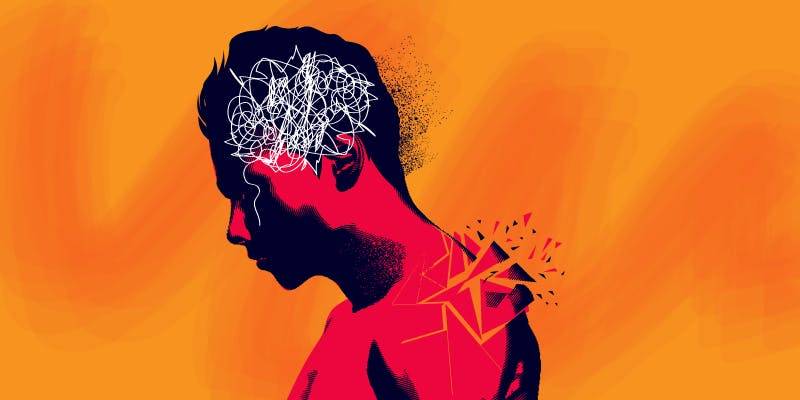
About 450 years ago (according to Canadian sociologist Erving Goffman), ancient Greeks coined the term “stigma” to describe the negative labels assigned to the disadvantaged in order to set them apart from others. Unfortunately, in almost every country, no matter how well developed it is, mental illness is viewed negatively and those suffering from it are stigmatized even though their illness is no fault of their own. These undesirable labels, undoubtedly, plague the lives of the sufferers and derail their well-being to a profound extent.
This marginalization exerts detrimental effects on the physical, social and psychological development of individuals who are so challenged in life. The negative reactions and attitudes of the public towards mental illness enormously impact how those struggling with the illness think about themselves. As a result, they suffer from a low self-esteem and think that a mental disorder is something to be ashamed of. More crucially, due to the fear of being stigmatized and getting rejected by society, they conceal their symptoms and show unwillingness to seek treatment – which is evident when we see that across much of the world, people are more reluctant to admit to mental problems rather than physical disabilities. To make things worse, stigmatization gradually leads to undesirable consequences like deterioration of health, loss of employment and isolation from the community owing to the mark of disgrace attached to them and lack of support from the social environment.
Stigma towards mental illness is not just a problem confined to cities in Asia or Africa. As mentioned earlier, it is a problem also in the wealthy cities in the West. All of this leads us to one question: How, if possible, can we reduce these stereotypes and the stigma associated with these problems?
First of all, instead of viewing people by their disorder and using ableist terms like “psycho”, “schizophrenic” and “retarded”, we should use more humane phrases. Secondly, since underrepresented groups are stigmatized more than others, governments should pass a bill that focuses on equal mental health facilities for everyone irrespective of their race, social class, religious sect and ethnicity. Thirdly and most importantly, anti-stigma campaigns should be carried out on a mass scale which would not only draw our attention towards this neglected topic but would also enable us to show empathy towards the mentally ill instead of disgracing them.
This marginalization exerts detrimental effects on the physical, social and psychological development of individuals who are so challenged in life. The negative reactions and attitudes of the public towards mental illness enormously impact how those struggling with the illness think about themselves. As a result, they suffer from a low self-esteem and think that a mental disorder is something to be ashamed of. More crucially, due to the fear of being stigmatized and getting rejected by society, they conceal their symptoms and show unwillingness to seek treatment – which is evident when we see that across much of the world, people are more reluctant to admit to mental problems rather than physical disabilities. To make things worse, stigmatization gradually leads to undesirable consequences like deterioration of health, loss of employment and isolation from the community owing to the mark of disgrace attached to them and lack of support from the social environment.
Stigma towards mental illness is not just a problem confined to cities in Asia or Africa. As mentioned earlier, it is a problem also in the wealthy cities in the West. All of this leads us to one question: How, if possible, can we reduce these stereotypes and the stigma associated with these problems?
First of all, instead of viewing people by their disorder and using ableist terms like “psycho”, “schizophrenic” and “retarded”, we should use more humane phrases. Secondly, since underrepresented groups are stigmatized more than others, governments should pass a bill that focuses on equal mental health facilities for everyone irrespective of their race, social class, religious sect and ethnicity. Thirdly and most importantly, anti-stigma campaigns should be carried out on a mass scale which would not only draw our attention towards this neglected topic but would also enable us to show empathy towards the mentally ill instead of disgracing them.
